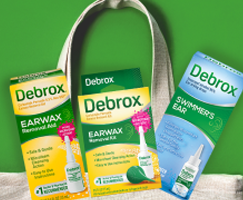Ear Care Education
Why Do My Ears Itch? Here Are 6 Reasons Why

Don’t believe the superstition—having itchy ears does not mean someone is talking about you. Itchy ears usually have a cause that’s biological, not mythological.
The truth is that itch may arise for a number of reasons. We’ll give you six that can help you figure out the cause and set you on a path to relief.
1. Ear infection
Sometimes, the first symptom of an ear infection can be itchiness inside your ear. If itching is followed by pain in the ear that doesn’t go away, it’s time to call a doctor and find out if you have an infection. If you have a hearing aid, make sure you clean it as directed to help prevent ear infections from happening.
2. Earwax buildup
Earwax is your friend. It helps protect the ear from infection. But too much is not a good thing. A buildup of earwax can make your ears feel itchy, can make you feel dizzy and can affect your hearing. The good news is this can be easy to fix. Put down the cotton swab and pick up our Debrox® earwax removal drops for safe and easy earwax removal.
3. Over-cleaning your ears
Despite what you may have heard as a kid, there is such a thing as being “too clean,” especially when it comes to your ears. Ears produce earwax and oil to protect your ears and hearing. Over-cleaning can leave ears dry and itchy, and pushing a cotton swab too far in can result in an earwax blockage or damage to your ear. Let your earwax come out on its own, and then wipe away flakes of it from the surface of your ear.
4. Hearing aids
If you are new to wearing a hearing aid, you may experience some itchiness at first. Hearing aids can also trigger itchiness if you are allergic to the plastic coating, if the hearing aid doesn’t fit right, or if water gets trapped behind the hearing aid. If the itchiness persists, talk to your doctor or the specialist who fit you for the hearing aid to find a solution.
5. Underlying skin conditions
Because your ear is covered in skin, it’s susceptible to the same skin rashes and conditions the rest of your body might have. Dermatitis, eczema and psoriasis can all occur on your ears and cause dry skin, redness, flakiness and itching. You can even get a poison ivy rash or blisters on your ears. With your doctor’s okay, treat skin on the ear with a prescribed cream or ointment like you would everywhere else. Just don’t push that treatment into the ear canal.
6. Allergies
Allergies to pollen, dust mites and animal dander can cause itchiness in the ears as well as in your eyes and throat. Even food allergies can cause your ears to itch. People who have an oral allergy to certain fruits, nuts and seeds experience itching ears along with itchiness and redness around the mouth. Keep a diary of triggers to figure out the cause, and talk to your doctor to confirm those allergies and rule out other medical conditions.
Itchiness often goes away on its own, but if not, you now have some clues as to what might be going on. Just remember, do not use a cotton swab to clean inside your ear. If you have a buildup of wax, try Debrox® earwax removal drops to help the earwax soften and drain from the ear canal more easily.

